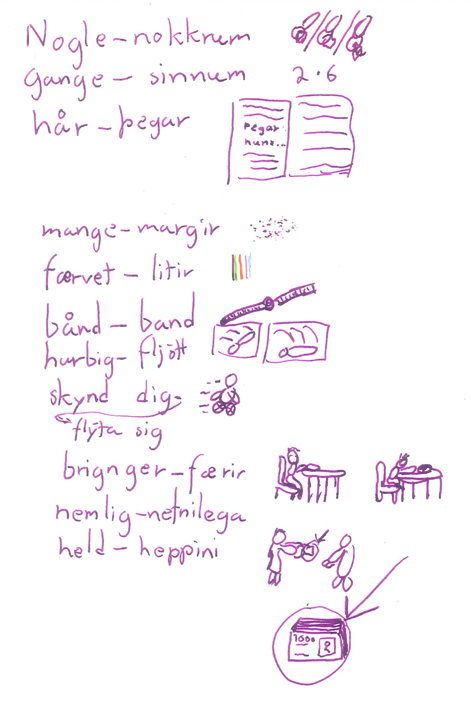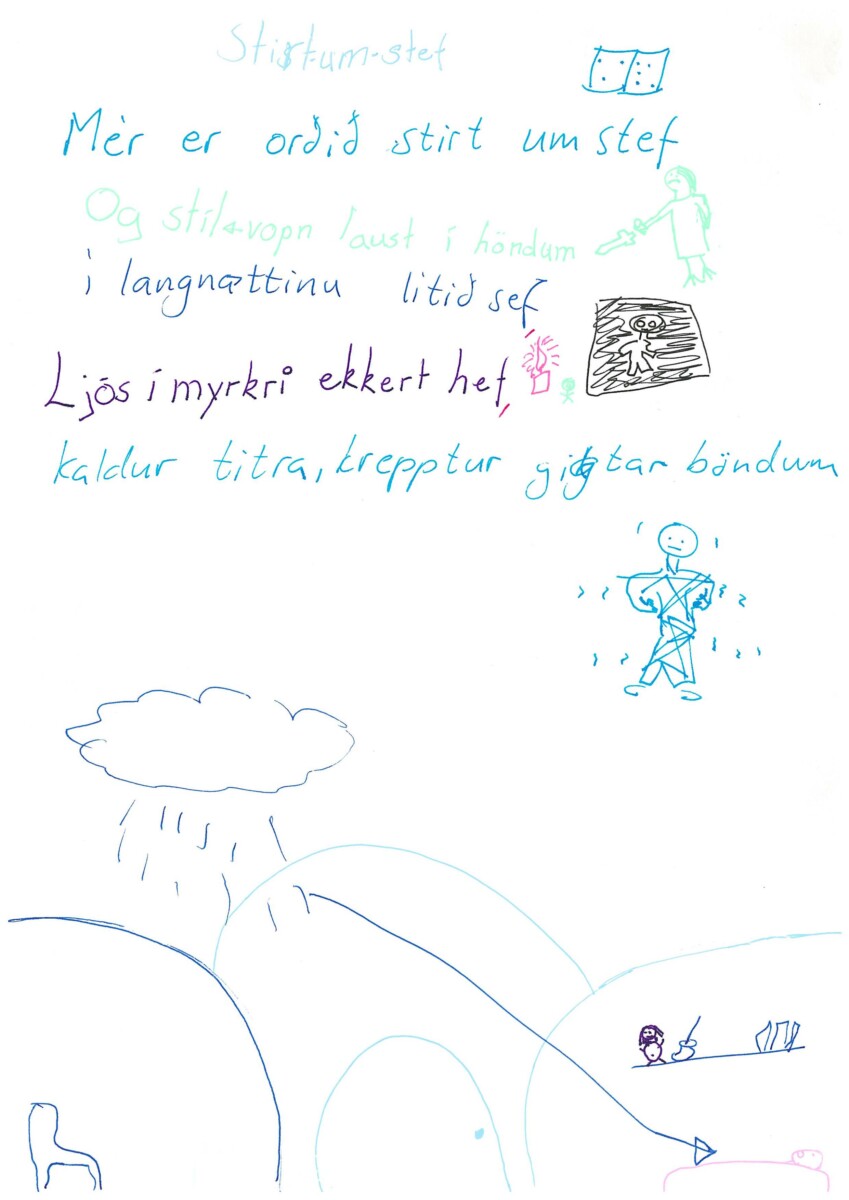
This course is intended for qualified art therapists, art therapy students, and other qualified creative therapists from around the world.
Through art making, sharing, supervision, discussions, reading, studying, and lectures the participants will gain knowledge about methods and theories of art educational therapy which includes the application of writing-images and memory-drawing. The course is for those who wish to include memory drawing and writing-images into their art therapy practices.
11 November kl 11.00 - 14.00
25 November kl 11.00 - 14.00
9 December kl 11.00 - 14.00
6 January kl 11.00 - 14.00
20 January kl 11.00 - 14.00
3 February kl 11.00 - 14.00

This course is open to qualified Art Therapists and Art Therapy Trainees. Participants will gain knowledge about the basis of the methods and theories of memory drawing, which aids individuals in better memorising various facts related to their coursework learning. Memory drawing also facilitates processing of emotions in the same way as the art-making process functions within art therapy.
Quantitative research which shows that memory drawing is an effective long-term memory aid will be introduced at the course, along with a qualitative case study that demonstrates the way in which memory drawing can simultaneously facilitate coursework learning and processing of emotions. The way in which memory drawing can be applied has implications and recommendations for professionals working in education, including art therapists who work in educational settings, as therapy and education are integrated within such memory drawing.
Through art making, sharing, discussions and lectures, the participants will gain knowledge about the basis of the methods and theories of Memory Drawing. Such drawing aids individuals in better memorising various facts related to their studies. Quantitative research conducted by Ottarsdottir showed that over long time periods, it is generally five times easier to recall drawn images of word content than written words. Along with aiding memory retention, memory drawing facilitates processing of emotions and difficult experiences in a similar way as the art-making process functions within art therapy which will be explained in the course.
Reference image: Ottarsdottir, U. (2019) Ethical Concern when Applying Drawing for Memory: Research Conducted in Iceland. In: Audrey Di Maria (Ed.). Exploring Ethical Dilemmas in Art Therapy (pp. 266-272). New York: Routledge.